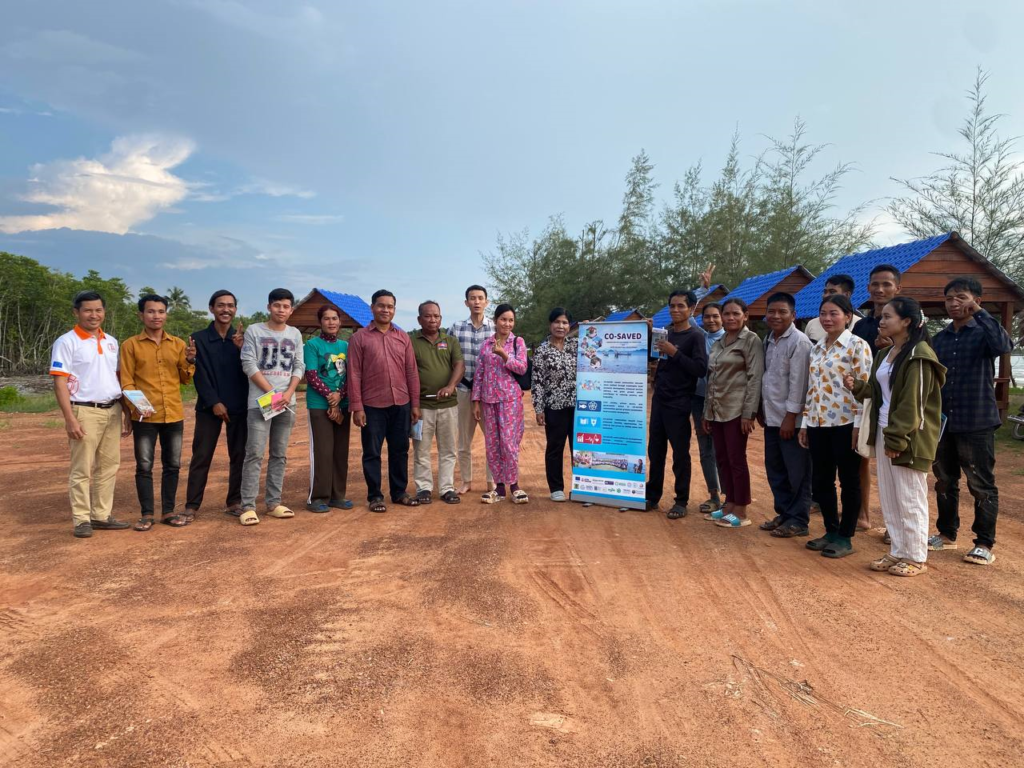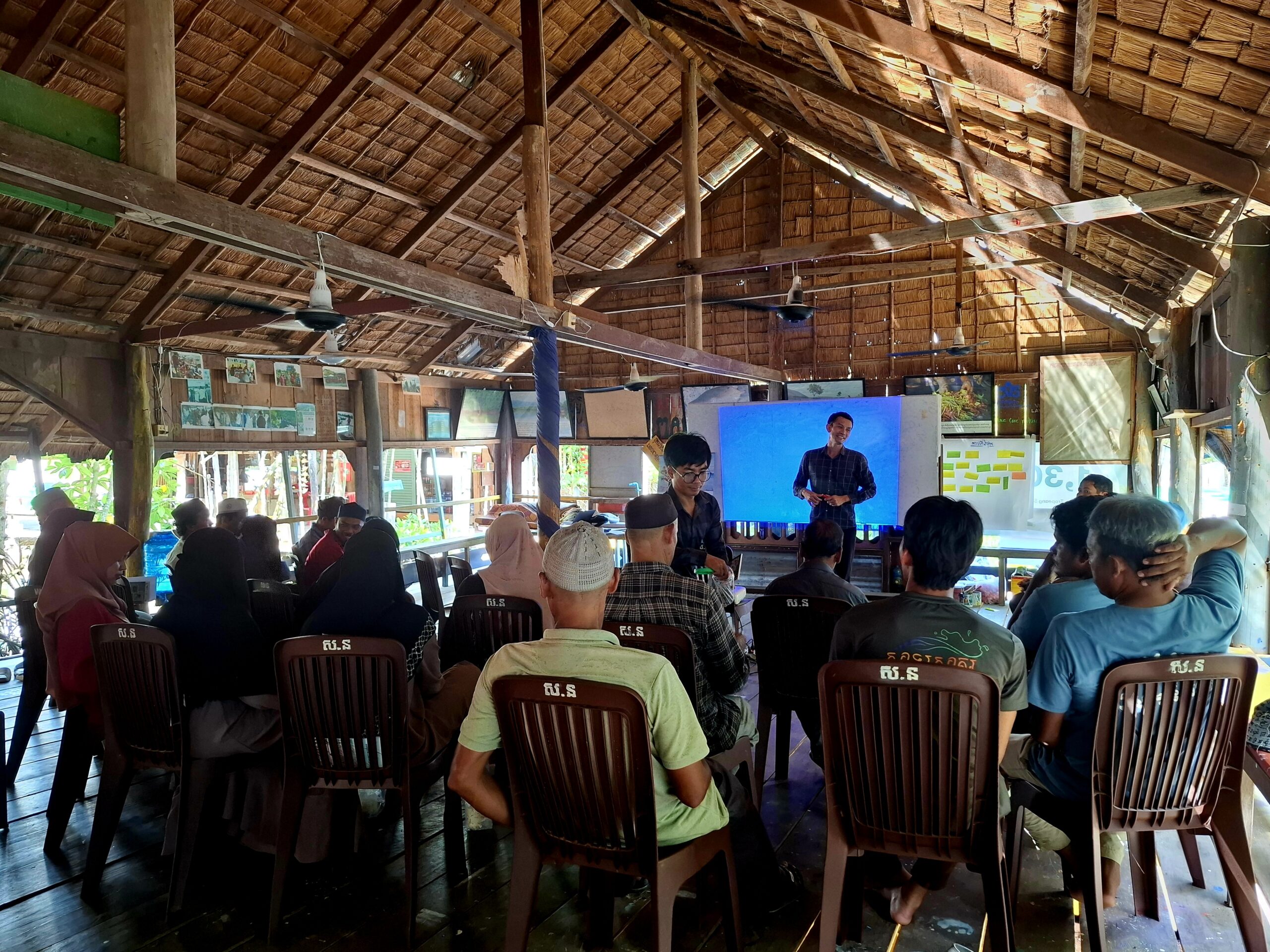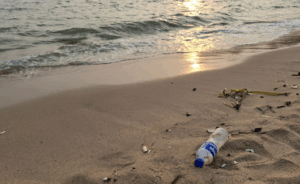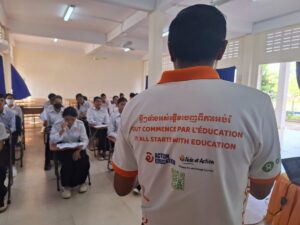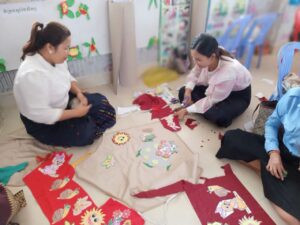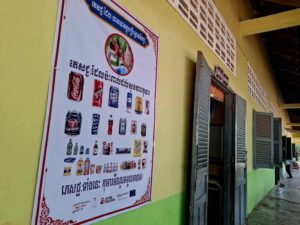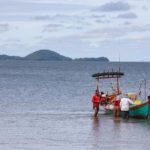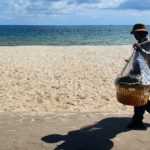From 3 to 7 November 2024, Action Education / Aide et Action (AEA) organized training sessions in the coastal regions of Kep, Kampot, and Koh Kong. The aim was to empower local communities to shape the tourism industry on their own terms. The focus was not just on integrating them into the tourism sector, but on equipping them to lead the industry in a way that benefits their environment, preserves their cultures, and promotes global sustainability.
The CO-SAVED project, co-led by AEA and co-funded by the EU, aims to raise environmental awareness and improve livelihoods. Community-based eco-tourism offers a way to diversify local economies, provide alternative sources of income and, reduce dependence on harmful practices like habitat destruction or water waste by luxury resorts. Participants were learning to build resilience to climate change and economic shocks, which boosted their confidence in securing sustainable futures for themselves and future generations.
Expert trainer Khoun Tola from Kratie covered practical skills, from booking management and guest hospitality to building online promotion. With a background in Tourism Management and years of hands-on experience, he shared his enthusiasm. “I am so inspired by the motivation and dedication of the participants,” he said. “Some have already experience in the sector and are building confidence, while others are just beginning their eco-tourism journey, taking the right steps on a promising path.”
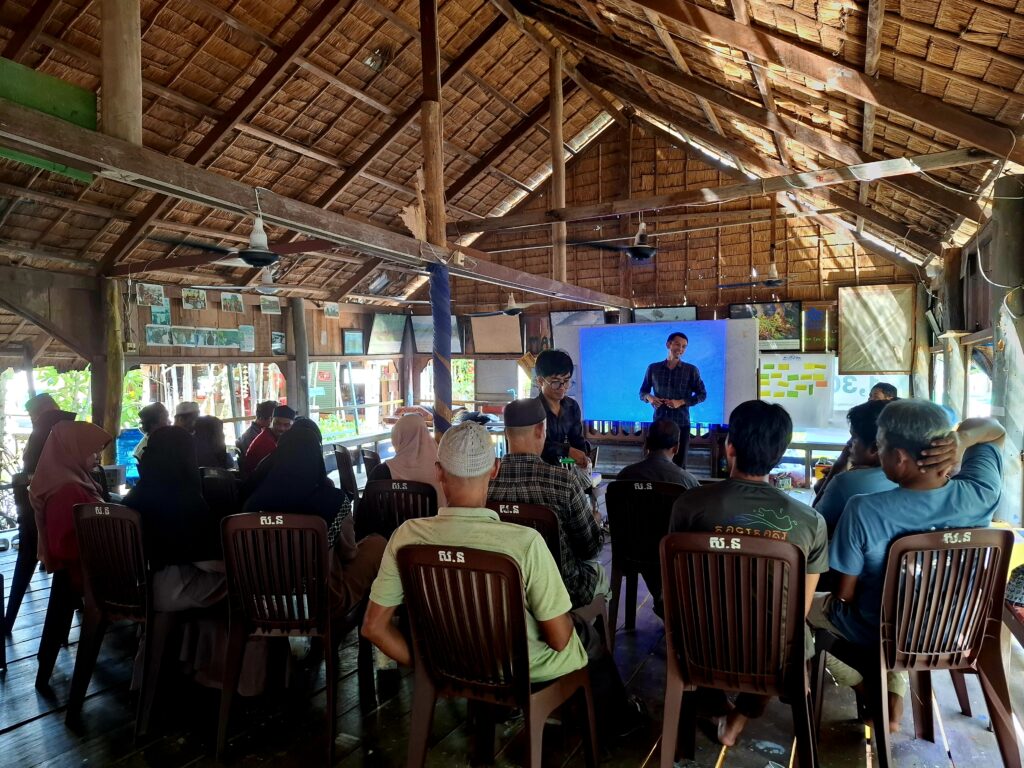
Communities are not just learning how to benefit from their ecosystems; they are becoming active in their restoration and protection. This is eco-tourism on their terms – an empowering approach that allows them to shape tourism according to their values, needs, and cultural practices. By adopting sustainable practices such as mangrove reforestation, they ensure that tourism supports both their livelihoods and the preservation of their natural and cultural heritage.
Learn. Lead. Empower.
Capacity building and skill development are key to fostering local leadership in sustainable development. The fishing community of Trapeang Sangkae in Kampot, with more than a decade of experience managing their eco-resort, is already positioned to step into a leadership role. As they continue to grow, they build the power to inspire and guide other communities in the region to establish their own green businesses. This is the moment to allow local communities to lead the way – not as the forgotten people of the industry, but as the bold, empowered architects of the future.
With the right training, support, and partnerships, local communities can break down the barriers that have long excluded them from the global tourism market. The rivers, forests, temples, and villages of Cambodia are not just remote destinations – they are living, breathing symbols of resilience, culture, and history. By sharing their natural and cultural heritage with visitors, communities can generate income while fostering mutual respect and understanding.
These communities demonstrate that true wealth does not come from extraction or consumption, but from the deep, sacred connection between people and nature. By protecting forests, marine resources, and ecosystems, they offer a powerful example of environmental conservation. At the same time, their efforts raise awareness of these issues, both within their communities and among tourists. Through practices such as beach clean-ups and eco-tour development, they are shaping a future for both people and the planet.
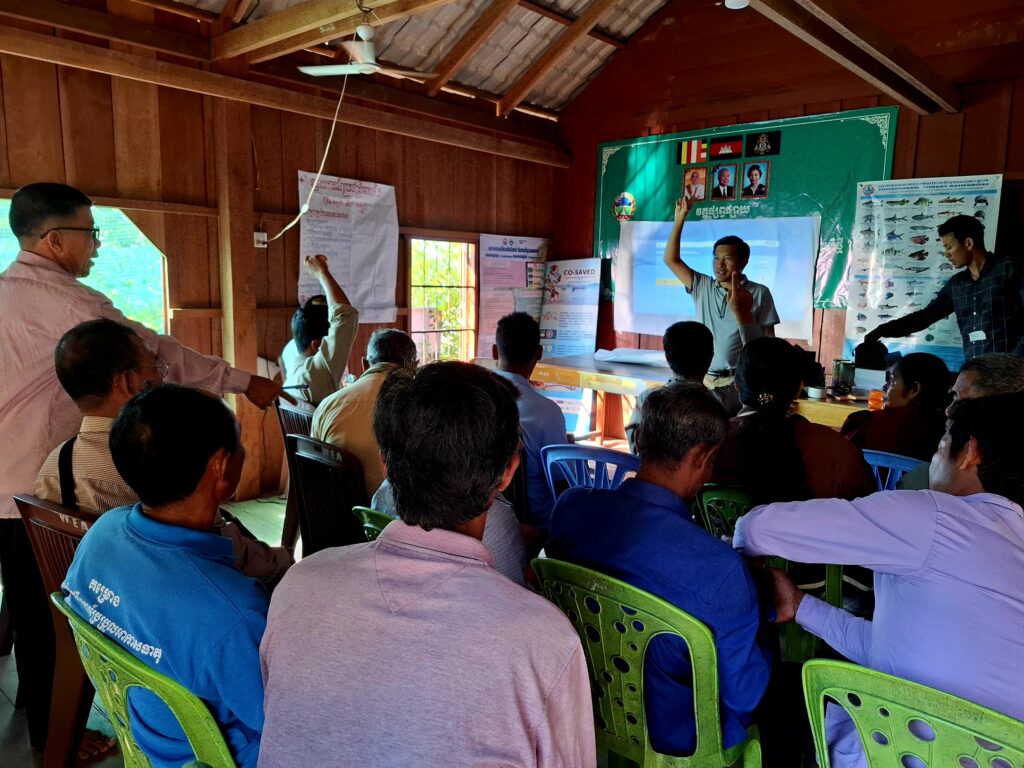
The Global Impact of Local Choices
Community-based eco-tourism is not just a business model; it is a profound commitment to going beyond profit and thriving together. At AEA, we believe that both local and global economies should be shaped by those who live in harmony with the land, forests, rivers, and seas. By training local communities – especially women, youth, and marginalized groups – in eco-tourism, we are not just teaching them how to survive in a changing world. We are learning together how to thrive in inclusive, sustainable societies where everyone has the opportunity to contribute and benefit.
The global impact of local choices is undeniable: by engaging in community tourism, visitors contribute to local economies while promoting global awareness of sustainable living. Choosing eco-tourism means rejecting the empty promises of mass tourism, where overconsumption and environmental degradation are hidden behind luxury and glittering pools. It’s to see environmental conservation as a direct means of sustaining the tourism industry. It’s for those who dare to think beyond the mainstream, spending money where it truly matters.
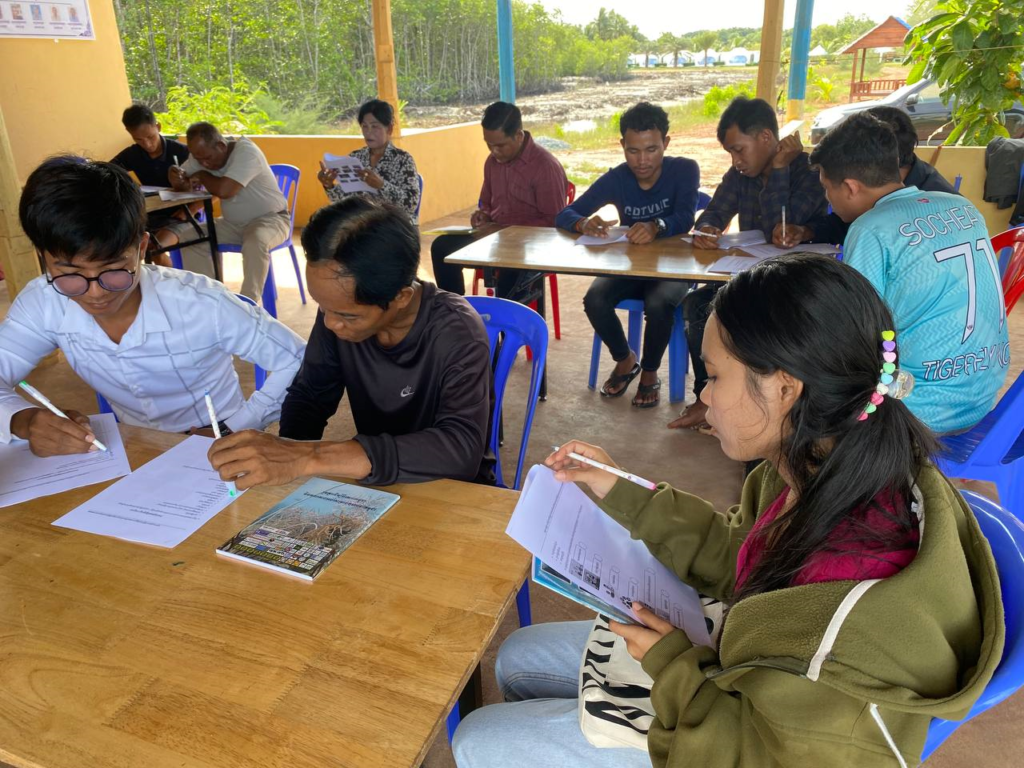
Beyond Profit: Thriving together
As an eco-tourist, your money goes directly to the farmers, artisans, and storytellers of fishing villages – people who are far more than just photo backdrops. They are living, breathing communities with stories, traditions, and knowledge passed down through generations. Unlike mass tourism, community tourism prioritizes human well-being and culture. Your visit can bring tangible health benefits, by providing resources to improve access to clean water and sanitation. By engaging with local traditions, crafts, and ways of life, you generate revenue to sustain practices that might otherwise fade and ensure they are passed on to younger generations.
Choose to see Cambodia in a way that tourists do not always see – locally rooted, and deeply connected to the natural world. Come not as a tourist, but as a friend. From the rice fields to the temples, from the forests to the rivers, this is an invitation to walk alongside communities. Taste the food they grow, listen to their stories, and learn from their ways of life. This is a kind of tourism that empowers both you and the people you meet – a journey of mutual respect and cultural exchange.
